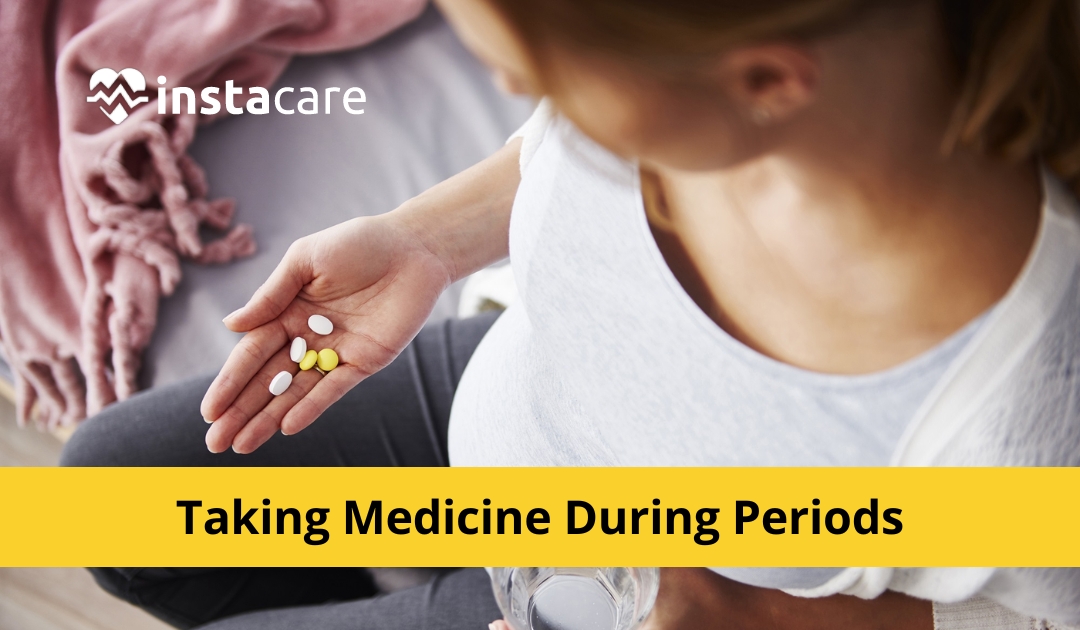When it comes to relieving period cramps, many women prefer using medications in tiny amounts. It is advised to avoid taking medications during your period because they may impair your body's ability to function.
While taking low medication dosages is acceptable, higher doses might have serious adverse effects. Let's examine the harmful effects of taking medication while on menstruation.
Constipation
Constipation, cramps, and a host of other problems come with periods. In addition to causing constipation during your period, taking too many painkillers can do so. This is because opioids, which are present in painkillers and slow down intestinal transit, are also present in them. This causes your intestines to excrete more water, resulting in firmer, drier, and more challenging-to-pass stools.
Nausea and vomiting
Feeling queasy or even throwing up is pretty usual when you're on your period. However, taking too many medications during your period may worsen your nausea and cause you to vomit.
Abdominal pain
If you take too many pills, your stomach will hurt or feel uncomfortable whether you have your period or not. This is because taking painkillers might irritate or coat the lining of your stomach, which can hurt.
View More: Brown Spotting Instead Of Period
Tightness of the chest or erratic heartbeat
Some medications may cause you to have tightness in your chest. Additionally, it might cause a momentary erratic heartbeat.
Weirdness
It is possible to experience vertigo while on your period. When used with medication, this could make you feel worse. Strong medications have the potential to cause a sudden drop in blood sugar or blood pressure, which can make you feel lightheaded.
Diarrhea
Medication might make period poop worse. Many medications end up causing stomach distress and diarrhea. You don't want to go through this, especially during your period.
Peptic ulcers
A stomach or small intestine ulcer can develop if you take too many medications during your period. This can be extremely painful and even bleed. You might wind up in the hospital due to this hazardous situation.
Drowsiness
Strong medications may make you feel sleepy. This is not helpful, especially if you need to keep your wits about you while working.
Reduced appetite
It's best to avoid anything that can make you feel less hungry because of the cramps, nausea, and general discomfort that come with having your period. Strong medications may affect your stomach lining and cause you to dehydrate, making you feel less like eating.
Reflux of acid
Consumers of painkillers frequently experience acid reflux. This is because painkillers induce the stomach to produce more acid. Additionally, it may prevent the production of prostaglandins, which are necessary to safeguard your digestive tract.
Natural treatments for period pain
If you don't want to face any unwanted effects from taking medication during periods, avoiding them is advisable. Here are some of the top all-natural remedies you can use in place of prescription drugs:
1- Hot compress
Apply hot water in a glass bottle, a hot water bag, or an electronic heating pad to the area around your pelvis. Letting the muscles loosen up will reduce cramping and pain in the abdomen.
2- Water intake
Cramping is exacerbated by bloating. Make sure also to drink enough water to prevent pain and bloating. Your muscles can relax, and uterine contractions can be reduced by consuming hot beverages, such as hot water.
3- Workout
Your muscles will warm up and become less cramped after exercise. Endorphins are also released, which might improve your general well-being. While going out while on your period may seem unusual, some exercises, such as light cardio, yoga, or pilates, can aid with cramp relief.
4- Massage
Massages relieve tense muscles and enhance blood flow throughout the body. This aids in reducing discomfort and excruciating cramping.
View More: How to Cure Period Rashes at Home
5- Natural tea
Period pain can be effectively managed with ginger or fennel tea. Both substances have anti-inflammatory and antispasmodic qualities that reduce uterine muscle contractions. In general, this relieves cramps.
Conclusion
Medications like painkillers and others can harm our bodies. We never know how these medications will affect our bodies during our periods. Therefore, it is preferable to rely on natural therapies and at-home cures rather than taking medications during periods. However, you can take a painkiller as your doctor prescribes if you're in excruciating pain.
Please book an appointment with the best Gynecologist in Lahore, Karachi, Islamabad, and all major cities of Pakistan through InstaCare, or call our helpline at 02137136090 to find the verified doctor for your disease.
Source: https://instacare.pk/blog/side-effects-of-taking-medicine-during-periods












